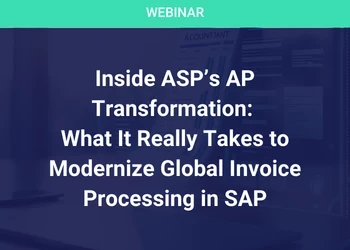
What role does ethics play in BPO pitches?
The recent news of a group of “ethical employees” from a leading BPO alleging that the company may have taken unethical steps to increase short term revenue and profits is a worrying sign. Not only does it tarnish the firm but it impacts the overall IT service industry.
It does not come as a surprise that there is a possibility of unethical practice during deal cycle, though I would caution against generalizing. The complex nature of deals presents several opportunities where deals can be fabricated towards a particular bias. Let’s understand the various elements during deal cycle that carry the risk of ‘unethical’ financial engineering.
- Business Case: It does happen that providers prepare an optimistic business case for an outsourcing deal, which is biased towards significant cost savings. Obviously, there is a vested interest in painting a rosy picture of the deal so that it goes through. Generally in such cases, the loopholes emerge in the form of incorrect assumptions, not capturing a few elements of clients’ costs (e.g. governance, HW, asset, licensing etc.) and there are many other parameters. Such practices create a false picture of a true business case. Of course, eventually the hidden costs are exposed to the disappointment of the client, who does not get the full benefits of the promised business case.
- Deal Construct: The deal construct phase presents several opportunities for the provider to play around with numbers and margins. It ranges from subtle de-scoping to inferior solutions, incorrect sizing, underestimating elements like HW, tools, technology etc. To be fair, in most of my deal experience I have found provider’s deal teams to be quite honest and straight forward in disclosing their assumptions and effort required. So the possibility of any unethical practice has to be very specific and limited to a few individuals in the industry.
- Financial Engineering: The other aspect during deal cycle is the overall financial engineering. This may be related to cost of working capital, assumptions around cash flow, interest rates, mark-ups, margins, sub-contracting, cost of asset acquisition and other such financial numbers. This is one area that is a black box. No one can really claim to know what’s happening. It is generally done in closed circle and supposedly reviewed by an authorized person. Clients and advisors, beyond a certain point, do not get the visibility and do not in truth care, as they benefit from it. Selectively I have come across scenarios where I would see a bid so attractive compared to its peers, that I would wonder at the prowess of friends on the other side (!); but never enough to raise serious doubts of malpractice.
As a deal advisor to clients, I have often assisted customers in analyzing unsolicited bids by IT service providers. It has sometimes amazed me how providers could skip certain factors, or make critical assumptions, so as to present a business that would be difficult to refuse. Post discovery and correction, I sometimes used to ponder on the cause behind such behaviors. I can only guess this is an accepted practice as part of a sales pitch.
The current saga does not bode well for BPOs’ reputations.
However, it is quite clear that IT and BPO firms need to quickly re-assess their compliance process and their mechanics. They need to ensure that complex excel sheets – heavy on numbers and assumptions – are reviewed and challenged appropriately. Perhaps the need of the hour is to establish a dedicated compliance team skilled in deal experience and governed by an independent group of professionals.


























